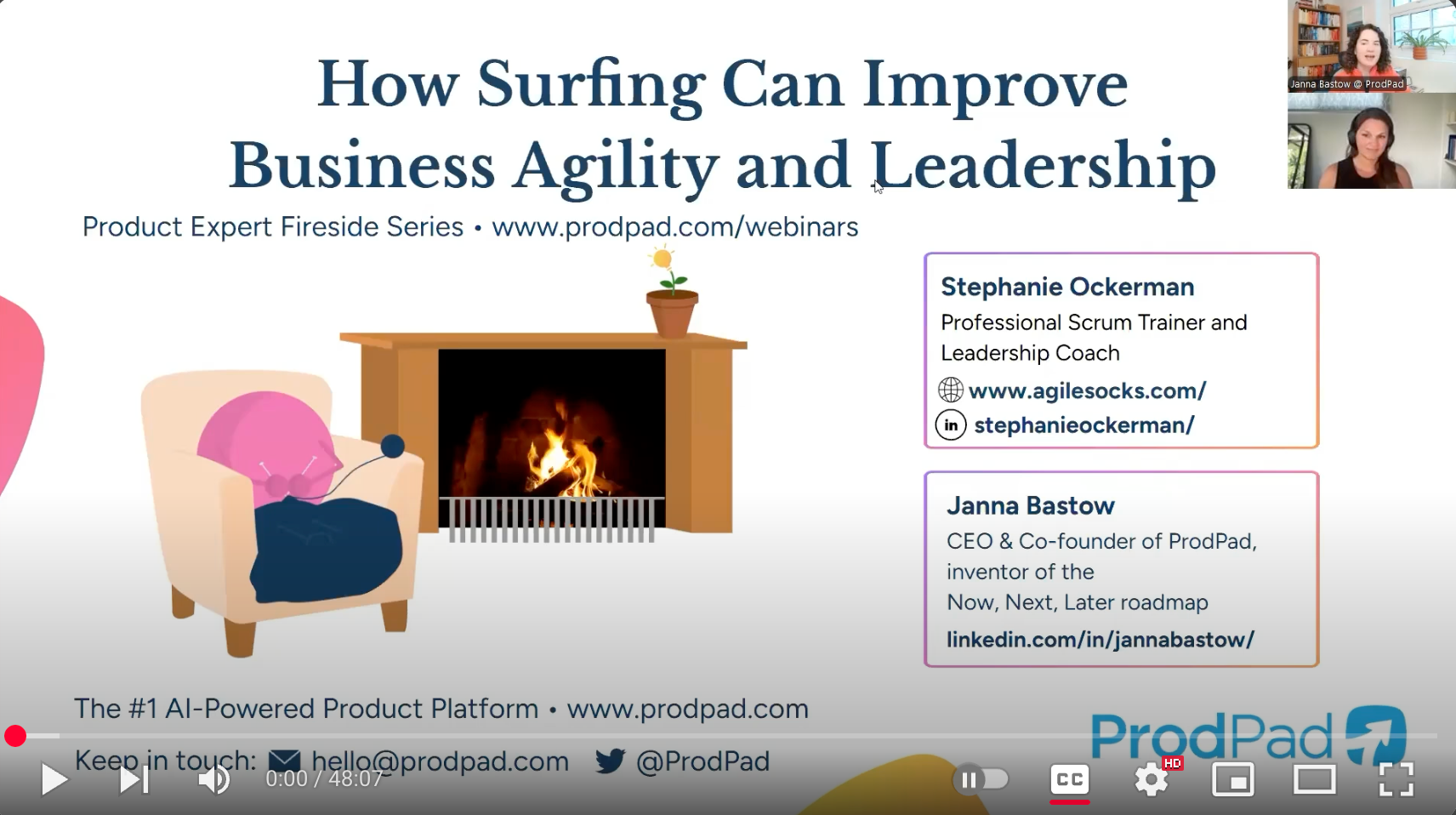
A paradox is something that is seemingly absurd but really true. When I experience complexity and uncertainty, I find comfort and power in paradox. It opens up creativity, possibility, and collaboration. Let’s take a look at 4 paradoxes we need to navigate in the agile world and beyond.
Agility is about accepting that the work is complex and unpredictable and committing to working in a way that honors the truth of this. In Scrum, we take an empirical approach to minimize risk and enable informed decisions along the way.
You cannot control everything that happens, but you can choose how you respond. You likely made choices that led you to the situation to begin with. And you will continue to make choices that lead you to new situations. Leadership means taking responsibility for your world.
Create transparency. Inspect and adapt.
This is how you always have some control even when you cannot control the variables that impact your work – by frequently making choices with new information.
Servant leadership means your growth and success is measured by the growth and success of others, the people who are choosing to follow you.
And this will be 100% impacted by how you are showing up.
I recently came across this statement in the book Contagious Culture by Anese Cavanaugh:
Waiting for “they” to show up differently, to act differently, to do something differently, to be different is a waste of time and energy at best, and completely uninspiring. You have no control there.”
If you want to create impact and help others grow and succeed, you need to show up in service of others. And to do that, you have to take care of your own needs to show up with intention and be fully present. You need to hold a clear vision aligned with your values. Believe the best about people, and include them in solving problems and tackling new challenges.
Are you bringing your full authentic self to your team and other relationships?
Are you modeling integrity and responsibility?
Are you leading by example with openness, curiosity, and compassion?
I can care deeply about you and believe that you are doing the best you can with what you have at the time. Yet that does not mean I should give you a pass when you have done something hurtful or damaging.
Perhaps the compassionate thing to do is to provide honest feedback and support you in closing the gap between where you are today and where you need to be. It is compassionate to believe someone can learn and grow, discovering new perspectives. And perhaps the compassionate thing to do is help you find a better fit for your skills, purpose, and passion.
The key is to set boundaries and hold people accountable. Boundaries can be as simple as saying what is okay and what is not okay, and they are essential for growing trust.
When someone does something that is not okay, we hold them accountable AND show them compassion and understanding.
This also applies to yourself. Hold yourself accountable and have compassion for yourself when you make a mistake. Own it, apologize, and do the work to make it right. Do the work on yourself to learn and grow from the experience.
This often goes along with #3. Sometimes an individual needs to hear a difficult message, and sometimes they need to hear it in a more direct and challenging way if the “gentle and nice” way isn’t working. Do this from a place of integrity.
Don’t sacrifice the health and safety of the team because you’re worried about upsetting someone (this is often about protecting their ego and/or your own discomfort). Sometimes you have to take decisive action in a timely manner to show that you value the other individuals in the team.
And you can do this while valuing the individual – assuming the most generous thing, giving them a chance to learn and redeem themselves by earning back the team’s trust.
Carl Jung described the paradox as one of our most valued spiritual possessions.
Only the paradox comes anywhere near to comprehending the fullness of life.
The ability to hold two contradictory ideas in our minds leads to possibilities we may not have seen before. It is what enables us to productively and creatively collaborate with others when there are few “right” answers. We can use our experience and wisdom, yet stay open to trying something new. This is what makes life interesting.



AGILE SOCKS is a registered trademark of Agile Socks LLC. Other marks used herein are the property of their respective owners. For more information see Trademark Notice in Terms & Conditions.